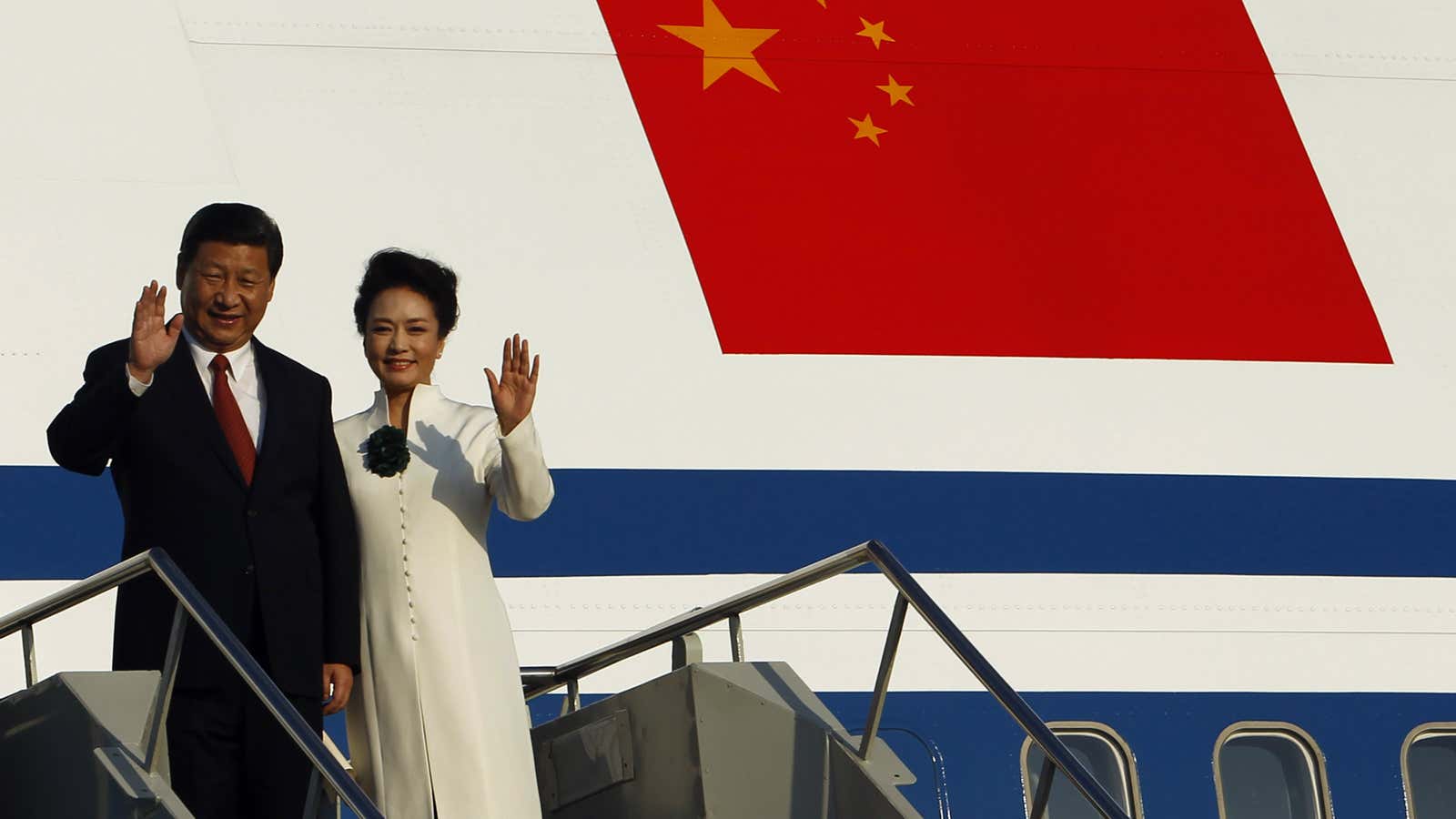After the US government shutdown iced US president Barack Obama’s planned trip to Asia, the smiling visages of Chinese president Xi Jinping and his photogenic wife Peng Liyuan seem to have been everywhere this week as they embark on a full-fledged charm offensive, forging new ties and crafting major deals with leaders around the region.
Over the weekend, US Secretary of State John Kerry, who is attending the Bali summit in place of Obama, promised that “nothing will diminish our commitment to Asia.” But any conversations he has are sure to lack heft and forward momentum thanks to uncertainty raised by the US government shutdown. Kerry admitted that people will question the US ability to “stay the course” if the shutdown is prolonged.
Xi’s trip takes place against the backdrop of two pending trade pacts, the Americas-focused Trans-Pacific Partnership, which does not include China, and the Asia-only Regional Comprehensive Economic Partnership, a 16-country free trade agreement expected to go into effect in 2015. While negotiations on both pacts continue, Xi made a number of other promises and plans on his Southeast Asian jaunt:
In Australia, China will look beyond mining: Xi laid out plans for increased economic and political cooperation between the two countries, which included more cooperation on infrastructure, information technology and energy conservation, in addition to their already-close ties in natural resources. At his first public meeting with Xi on Oct. 6, new Australian prime minister Tony Abbott declared that “China’s growing strength is a benefit to the world, not a challenge,” and said it was his “fervent hope” that the China-Australia relationship would strengthen in the coming months.
Reviving a massive oil pipeline in Malaysia: During Xi’s visit last week, the two countries discussed a long-planned oil pipeline that could reduce shipping congestion in the Straits of Malacca, according to former Malaysian prime minister Mahathir Mohamad, along with more Chinese investment in a new Malaysian auto-manufacturing zone and creating an independent trade and business pact. Malaysia and China also agreed to nearly triple bilateral trade to $160 billion by 2017.
Investment deals in Indonesia. Xi and Indonesian President Susilo Bambang Yudhoyono signed an agreement giving Indonesia companies $32.8 billion in financing and investment from Chinese firms, including manufacturing loans, new mining facilities and airplane financing.
Pledging to end 60 years of bitter political divide with Taiwan: “We cannot hand those problems down from generation to generation,” Xi told Vincent Siew, Taiwan’s former vice-president in Bali, Xinhua reported. Democratically-ruled Taiwan and China have negotiated a series of economic and cultural agreements in recent months, making their ties the “strongest they have been since the civil war” of 1949, when Chiang ki-Shek’s Nationalist Party fled to Taiwan, according to the South China Morning Post.
The APEC summit kicks off today in Bali, to be followed by a summit of the Association of South East Asian Nations in Brunei later in the week. That means Xi’s charm offensive, and new economic and political initiatives with countries like South Korea, whose leaders he’s meeting today, are just beginning.
